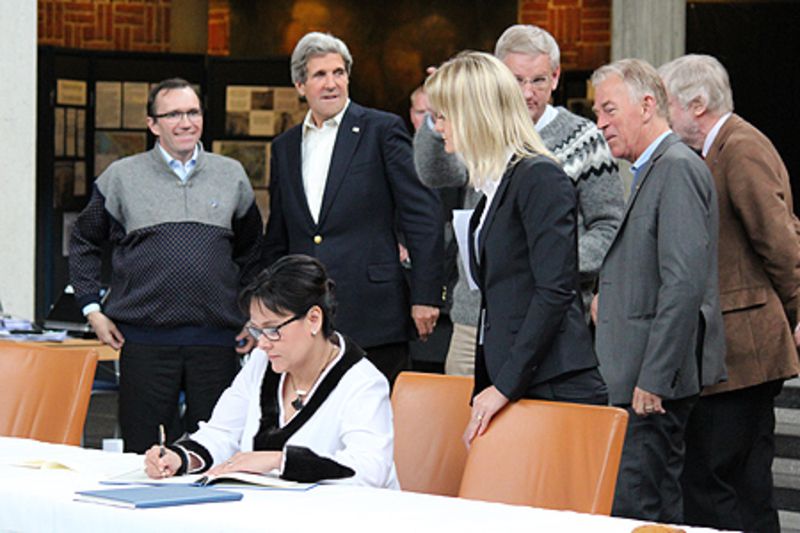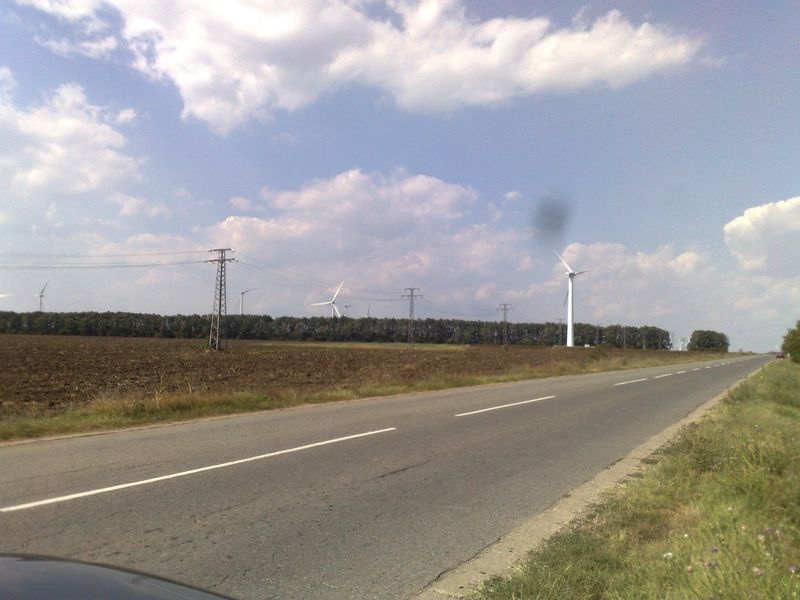The UK is against carbon surpluses to be transferred in the post-Kyoto period
Adelina Marini, October 29, 2009
 Last week Britain has announced its serious concern of the lack of progress in the international climate change negotiations that will come up with a successor to the Kyoto Protocol. The main concern of Britain comes from the fact that it is an island country and would suffer severely by the melting of glaciers, followed by a raise of the levels of the world ocean. As part of its efforts to provoke significant engagement globally, the British government presented a climate change map, showing how the world would look like when the global temperature will rise by 4C. More details about the map and the impact of climate change you can read to the right of this article.
Last week Britain has announced its serious concern of the lack of progress in the international climate change negotiations that will come up with a successor to the Kyoto Protocol. The main concern of Britain comes from the fact that it is an island country and would suffer severely by the melting of glaciers, followed by a raise of the levels of the world ocean. As part of its efforts to provoke significant engagement globally, the British government presented a climate change map, showing how the world would look like when the global temperature will rise by 4C. More details about the map and the impact of climate change you can read to the right of this article.
But this map provoked euinside to pose several questions to the British embassy in Bulgaria about the position of the UK on some key issues in the climate change negotiations. We are grateful to have received the answers of the Second Secretary in the embassy Mr. Stuart Peters:
euinside: The map that was presented on 22 October illustrates the consequences of a global temperature increase by 4 C. What is the current temperature increase?
STUART PETERS: The global (land and ocean) average temperature increase up to 2008 was 0.7oC compared to pre-industrial levels. Europe, however, has warmed more than the global average. The annual average temperature for the European land area up to 2008 was 1.3oC above pre-industrial levels, and for the combined land and ocean area 1oC above.
euinside: What is the UK's position on the emissions trading scheme especially for countries that have accumulated huge surpluses as in the case with the most of the East European states, Russia and Ukraine?
STUART PETERS: The issue whether such surplus credits should be carried over after 2012 is a big challenge for the international climate talks as lawmakers worry about the continuity of the carbon market beyond 2012. The key to any market is scarcity, which determines price. If carbon credits are too easily available, their price will be low and the system will not work as an effective measure to reduce emissions. EU diplomats are now working on possible solutions to the problem. The UK, along with several other countries, consider the surplus carbon units should be cancelled after Kyoto expires because they undermine the system. (Bulgaria is on the opposite position, n.e.)
euinside: The EU Environment Minsters stated in their conclusions that carbon markets need to be set up as well as for a price to be decided. What is the UK position on the price of the carbon emissions and on what should this price be based?
STUART PETERS: A global price for carbon must be a core objective of a post-2012 climate change agreement. There are two recognised policy mechanisms that can create this – cap and trade schemes or carbon taxes. Cap and trade has several advantages over carbon taxes. It offers greater certainty over the level of emissions reductions to be achieved and provides these in the most cost-effective way possible. The UK therefore considers Cap and trade as its preferred mitigation instrument in major economies.
The new agreement should envisage linking trading schemes to create a global carbon market. As well as maximising cost efficiency, expansion of carbon trading should ensure sufficient demand for carbon credits generated through the offset mechanisms created under the Kyoto Protocol. The EU ETS remains fundamental to the delivery of carbon savings as well as to the establishment of a carbon price. It covers around 40 per cent of EU greenhouse gas emissions, making it the largest carbon market in the world. From 2012, the scheme will also include aviation, capping carbon emissions from this sector, while enabling cuts to be made in the most cost-effective way.
euinside: Has the UK taken advantage of the opportunities for emission trade scheme according to the Kyoto Protocol - has the country bought, sold, on what price, etc? And if not, why?
STUART PETERS: The EU ETS represents a major opportunity for the UK. The UK was the primary purchaser of 59% of CDM/JI* credits in 2007, largely for onward international trading. The UK was the first EU Member State to auction carbon allowances under Phase II of the EU ETS (2008-2012), holding two successful auctions and raising over 100 million pounds. Auction revenue helps support public spending, including investment in public transport and energy efficiency. These auctions have helped secure London as the global centre of the carbon market, and demonstrate the Government’s commitment to a robust, long-term carbon price.
*The Clean Development Mechanism (CDM) and the Joint Implementation (JI) instrument enable developed countries that have binding emission reduction or limitation targets under the Kyoto Protocol to invest in emission-saving projects in third countries. The emission credits generated by these projects can be purchased by companies in the EU ETS to offset a proportion of their emissions, in the same way as allowances.
euinside will continue to look for the points of view of other industrialized countries in the eve of Copenhagen.
 | © Government of Sweden
| © Government of Sweden | © КРИБ
| © КРИБ | © euinside
| © euinside